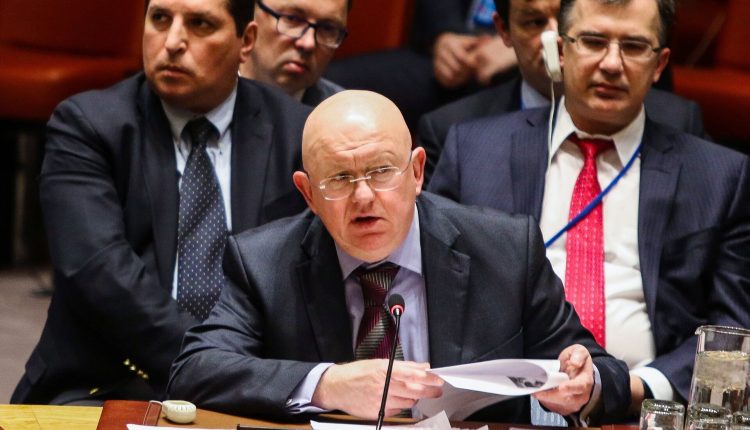Russia Criticizes Syria’s Transitional Government in Closed-Door UN Meeting
By Kardo Roj
DAMASCUS, Syria (North Press) – Russia sharply criticized Syria’s transitional authorities during a closed-door United Nations meeting this week, warning of the rising threat of jihadist groups and drawing comparisons to historical mass killings, Reuters reported on Friday.
According to diplomatic sources familiar with the discussions, Russia’s UN envoy, Vasily Nebenzya, invoked the 1994 Rwandan genocide, in which extremist Hutu militias massacred Tutsis and moderate Hutus. “No one is stopping the killings in Syria,” Nebenzya reportedly told attendees.
His remarks come as violence continues to escalate in Syria’s coastal regions, where sectarian tensions have intensified following the fall of former President Bashar al-Assad’s government. The March 6 attack on the new government’s security forces—allegedly carried out by former military figures linked to Assad—triggered widespread retaliatory killings, particularly targeting members of the Alawite community.
Russia’s criticism of Syria’s transitional leadership marks a significant shift in tone, given its longstanding military and political involvement in the country. Moscow has been a key player in maintaining two major military bases on Syria’s coast, the same region where hundreds of Alawite civilians were reportedly killed last week.
Despite its previous unwavering support for Assad—who fled to Russia in December—Moscow has recently emphasized the need to keep Syria unified. On Tuesday, the Kremlin stated it was in discussions with other nations regarding the situation and reiterated its commitment to Syria’s territorial integrity.
The changing Russian stance raises questions about how it intends to navigate its relationship with Syria’s new authorities, particularly as regional and international powers assess the country’s post-conflict trajectory.
Moscow’s warnings about jihadist threats align with growing concerns over Syria’s fragile security situation. The transitional government, led by President Ahmad al-Sharaa, has vowed to hold accountable those responsible for the coastal massacres, including any factions linked to the new administration.
While Russia has yet to take direct action beyond its verbal condemnation, its rhetoric signals potential tensions between Moscow and the new Syrian leadership.
Meanwhile, the Autonomous Administration of North and East Syria (AANES) continues to call for an inclusive and democratic governance structure to prevent further instability. Officials in northeast Syria have emphasized that only a truly representative political system—one that includes Syria’s diverse communities—can prevent further cycles of violence.
Russia’s increasing unease with Syria’s transition raises critical geopolitical questions: Will Moscow seek to exert more influence over the new authorities? Could its warnings about jihadist threats pave the way for a shift in its military posture?
As the situation develops, Syria’s new leadership faces mounting pressure to ensure accountability while navigating the challenges of national reconciliation. With Russia voicing discontent, the country’s fragile transition may encounter new diplomatic and strategic complexities in the weeks ahead.

